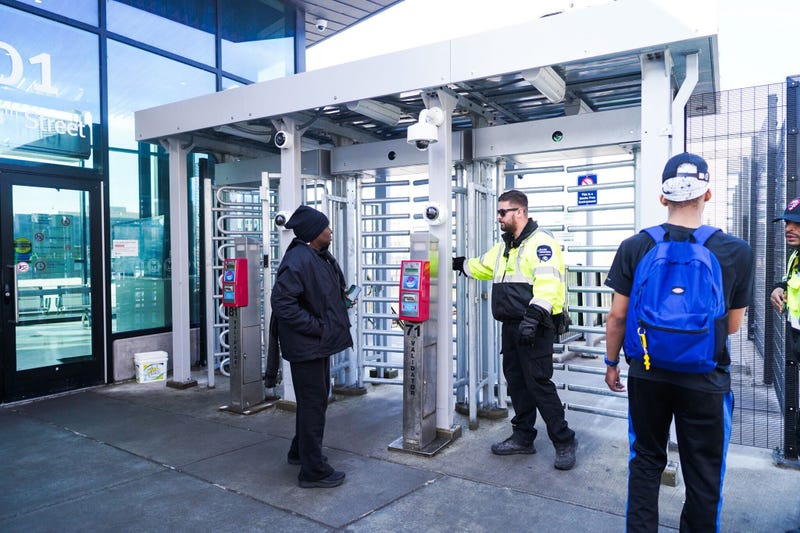
It's been a major issue for MetroLink riders recently — locked train platforms, with no way for paying passengers to get through the security gates.
The problem is that while 11 stations now have new turnstiles installed as part of the "Secure Platform Plan," none of the stations have the ticketing technology that's supposed to open those gates. And passengers complain the human security guards who are supposed to check tickets and open gates in the interim often wander off, leaving entry points inaccessible.
Metro security chief Kevin Scott, at a town hall on Thursday held by the advocacy group Citizens for Modern Transit, said he initially prioritized security over convenience, calling it "interim operational mode."
"I knew for a fact that the build-out of the first 11 platforms would be ahead of the integration of the fare collection system," Scott explained. "What I wanted to do as the project leader was show a tangible, viable security impact," which he says has happened in crime stats at those stations.
CMT Executive Director Kim Cella asked him: "If a rider approaches a gate and the security personnel has stepped away, what are the rider's options to make sure they can efficiently get through the gate and not miss any further connections?"
Scott responded: "That's an excellent question. At each gate there's a public assist telephone. It's on a pedestal."
But riders report there's often no answer on the end of the line.
Then, after the meeting was over, Metro announced a change in policy.
"Effective immediately, when any of the security gates are unattended, the security gate will remain open. If the guard posted by the gates needs to leave to check on something, the team at the Real-Time Camera Center will monitor the gates and lock one of them open.
This change will help ensure customers are not delayed and can make their MetroLink and MetroBus connections on-time. When the guard returns to their post, the gates resume their normal operation – customers should present their valid fare to the guard when approaching the gates to have them opened."
The meeting was billed by Citizens for Modern Transit as a "candid conversation" about the safety and security initiatives. Other concerns were also raised, like a seeming increase in people smoking on trains.
MetroLink light rail has had open platforms since it started running, which is how similar systems in regions like Minneapolis-St. Paul and Salt Lake City operate. A push by business leaders after high-profile crimes on the system resulted in the decision to surround all of St. Louis' stations with fencing.
Scott told the meeting he's already "corrected a lot of those issues with security officers who vacated the gates, or they weren't paying attention, or didn't understand the holistic dynamic of what we're trying to accomplish."
The new open-gate arrangement is temporary until the new tap-to-pay (and tap-to-open-the-gate) ticketing system is in place, expected next year.
